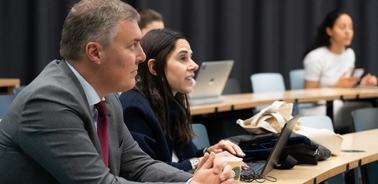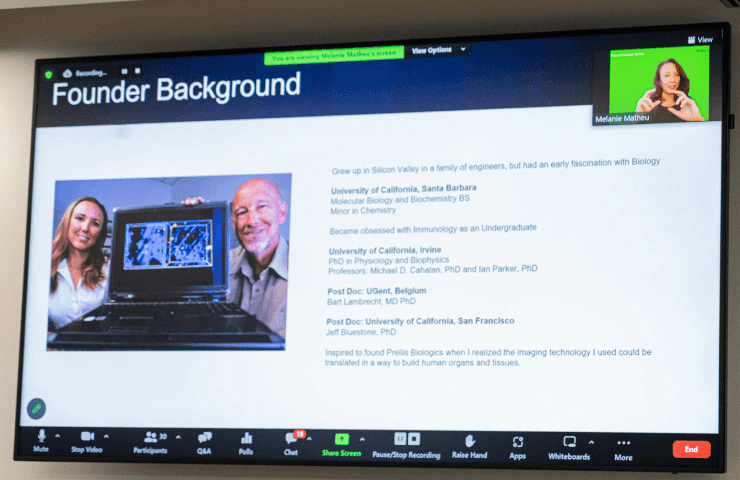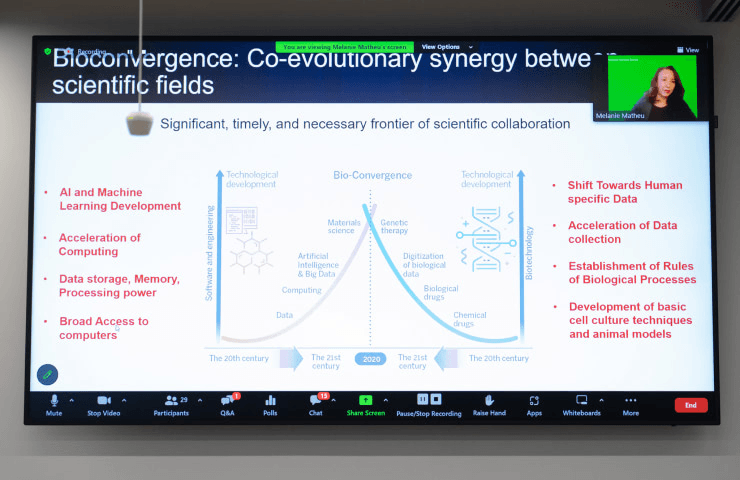The Final Catalyst Impact Lecture Spotlights Latest Breakthroughs in Clean Energy and Tissue Engineering

IE and UC Berkeley host CEOs of Emulate Energy and Prellis Biologic to explore clean energy and tissue engineering innovations.
IE School of Science and Technology and UC Berkeley's Sutardja Center hosted the final event this semester of the Catalyst Impact Lecture Series, in which two revolutionary technologies stole the spotlight: virtual storage of electric energy and tissue engineering.
Shwan Lamei, CEO of Emulate Energy, and Melanie Matheu, CEO of Prellis Biologics, offered insights on virtual and sustainable energy storage, and tissue engineering for drug discovery, respectively.
While the former session partly focused on green energy production, the initial part of this lecture addressed the sustainable storage of such energy.
As the world faces a historic energy crisis, the transition to green energy has become crucial for mitigating climate change and creating a sustainable future for generations to come. “The crisis that we see right now is of absolute historic proportions, we haven’t spent this much in energy in 40 years,” said Lamei.
According to Lamei, as societies gradually shift away from traditional fossil fuel-based energy sources, the costs associated with this transition are substantial. With the importance of the energy transition increasingly emerging, companies like Emulate Energy are at the forefront of developing innovative and sustainable energy storage solutions.
“We are trying to make it easy for energy companies to create new green services and then make it easy to trade those resources,” explained Lamei. Emulate Energy’s solution is a virtual battery that costs less than a traditional one and has no environmental footprint.
Finally, when asked about how to speed up the transition, Lamei suggested implementing “cost-reflective tariffs” on the end-user to reflect the cost that society incurs. “The only way to naturally incentivize people to do the right thing is to pay for the damage that they will cost if they don’t,” he added.
The second segment marked the first-ever discussion in the Catalyst Impact Lecture Series on Bio-engineering. Melanie Matheu, CEO and founder of Prellisbio introduced her field by explaining bioconvergence. She described it as the “meeting of minds,” a place where scientific disciplines come together to share ideas and build upon each other's advances.
The development of new drugs can take many years and cost billions of dollars, with a high failure rate in clinical trials. Prellisbio offers a solution to that. It involves using tissue engineering to create 3D-printed living tissue models that can be used for drug testing, or, ultimately, transplantation. This allows for more accurate predictions of how drugs will perform in the human body, which can help reduce the time and cost of developing new drugs.
Finally, when asked about the impact of such a technology on other fields, Matheu responded, “If you can imagine everything that you can’t ethically do with the human, we can now do that in-vitro, in a dish.”

